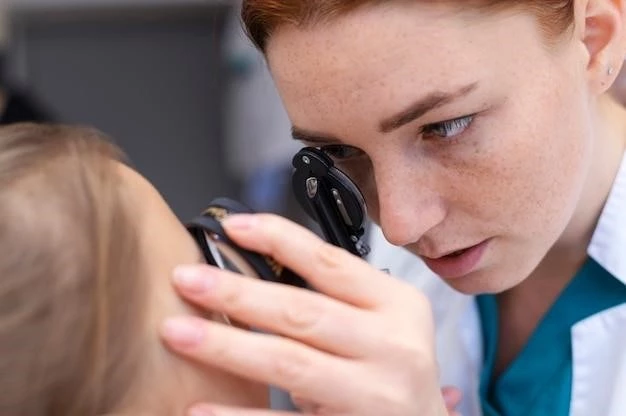Exudative Retinopathy, Familial
Introduction
Familial exudative retinopathy is a rare genetic eye disorder characterized by abnormal blood vessel development in the retina. This condition can lead to vision loss and blindness if not diagnosed and managed promptly.
Individuals with familial exudative retinopathy inherit a faulty gene that affects the formation of blood vessels in the retina. The genetic mutation disrupts the normal growth of blood vessels, leading to leakages that cause fluid accumulation and potential damage to the retina.
Early detection and intervention are crucial in the management of familial exudative retinopathy to help preserve vision and prevent complications. Understanding the causes, symptoms, diagnosis, treatment options, prognosis, and advancements in research can aid in providing comprehensive care for individuals affected by this familial retinal condition.
Causes of Familial Exudative Retinopathy
Familial exudative retinopathy is primarily caused by genetic mutations that affect the growth and development of blood vessels in the retina. These mutations are inherited in an autosomal dominant or recessive pattern, meaning that a faulty gene from one or both parents can result in the condition.
The mutations typically impact genes involved in vascular development, such as those responsible for producing specific proteins essential for blood vessel formation. In familial exudative retinopathy, this disruption leads to abnormal blood vessel growth, leakage, and fluid accumulation in the retina.
While the exact genetic mutations involved in familial exudative retinopathy can vary among affected individuals, the common thread is the impaired vascular structure in the eye. Understanding the genetic basis of the condition is vital in diagnosing and managing familial exudative retinopathy effectively.
Symptoms
Familial exudative retinopathy can present a range of symptoms that affect vision and eye health. Common signs of this genetic retinal condition include⁚
- Decreased visual acuity
- Abnormal eye movements
- Strabismus (crossed eyes)
- Nystagmus (involuntary eye movements)
- Poor night vision
- Blind spots in the field of vision
- Deterioration of peripheral vision
- Light sensitivity
These symptoms may vary in severity and can progress over time if left untreated. It is essential for individuals experiencing any of these signs to seek prompt medical evaluation by an eye care professional. Early diagnosis and intervention can help preserve vision and prevent further damage to the retina in familial exudative retinopathy.
Diagnosis
Diagnosing familial exudative retinopathy involves a comprehensive eye examination and specialized tests to assess the retina’s vascular health and function. The diagnostic process may include⁚
- Visual acuity testing
- Slit-lamp examination
- Retinal imaging (such as optical coherence tomography)
- Fluorescein angiography
- Genetic testing to identify the specific mutations
- Electroretinography to evaluate retinal function
Family history evaluation is crucial in diagnosing familial exudative retinopathy, as it is an inherited condition. Collaborating with genetic counselors and ophthalmologists skilled in retinal disorders can aid in confirming the diagnosis and determining the appropriate management strategy for individuals with this familial retinal condition.
Treatment Options
Managing familial exudative retinopathy focuses on preserving vision, addressing complications, and preventing further retinal damage. Treatment options for this genetic retinal condition may include⁚
- Anti-VEGF injections to reduce abnormal blood vessel growth
- Laser photocoagulation to seal leaking blood vessels
- Vitrectomy surgery to remove blood or scar tissue from the eye
- Gene therapy to address specific genetic mutations
- Vision rehabilitation services for individuals with visual impairments
- Ongoing monitoring and follow-up care to track disease progression
Individuals with familial exudative retinopathy may benefit from a multidisciplinary approach involving ophthalmologists, genetic specialists, and low vision experts to tailor treatment plans to their unique needs. Early intervention and regular eye care are essential in managing this familial retinal condition effectively.
Prognosis and Complications
The prognosis for individuals with familial exudative retinopathy can vary based on the severity of the condition, timely diagnosis, and treatment response. While early interventions can help preserve vision and slow disease progression, complications may arise, impacting overall eye health and quality of life.
Common complications of familial exudative retinopathy include⁚
- Progressive vision loss
- Retinal detachment
- Macular edema
- Neovascular glaucoma
- Strabismus-related amblyopia
Regular monitoring and adherence to recommended treatment regimens are crucial in minimizing the risk of complications and managing the long-term impact of familial exudative retinopathy. Diligent eye care can improve outcomes and enhance the quality of life for individuals affected by this familial retinal condition.
Research and Advancements
Ongoing research in familial exudative retinopathy aims to enhance understanding of the underlying genetic mechanisms, develop targeted therapies, and improve clinical outcomes for affected individuals. Recent advancements in the field include⁚

- Identification of novel genetic mutations associated with familial exudative retinopathy
- Advances in gene editing technologies for potential gene-based treatments
- Clinical trials investigating the efficacy of new pharmacological interventions
- Development of personalized medicine approaches based on genetic profiles
- Exploration of stem cell therapies for retinal regeneration
Collaboration among researchers, clinicians, and advocacy groups plays a vital role in driving progress in understanding familial exudative retinopathy and improving patient care. By staying abreast of emerging research findings and technological developments, healthcare providers can offer the most current and effective treatment options to individuals with this familial retinal condition.
Support and Resources
For individuals and families affected by familial exudative retinopathy, accessing support and resources can be invaluable in navigating the challenges associated with this genetic eye condition. Here are some key avenues for assistance⁚
- Genetic counseling services to understand hereditary factors and risk assessment
- Patient advocacy organizations offering information, networking opportunities, and emotional support
- Low vision aids and technologies to enhance visual function and daily living
- Educational materials on familial exudative retinopathy and available treatment options
- Clinical trial registries for those interested in participating in research studies
- Social support groups for sharing experiences and coping strategies
By accessing these support services and resources, individuals with familial exudative retinopathy can enhance their quality of life, gain insights into managing the condition, and connect with a supportive community of peers and professionals. Empowering patients with information and assistance is essential in fostering resilience and well-being in the face of this familial retinal condition.
